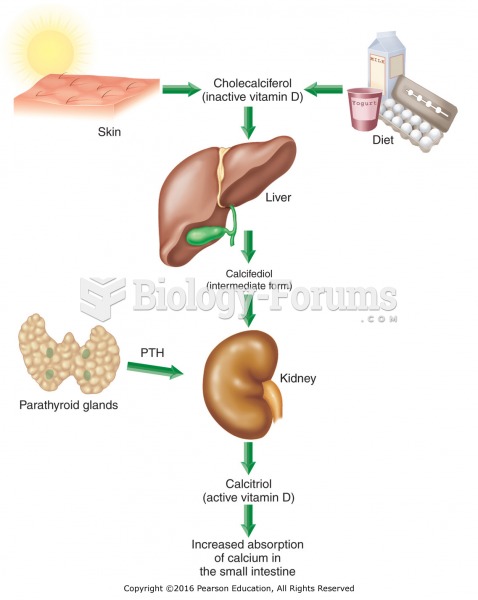|
|
|
Did you know?
HIV testing reach is still limited. An estimated 40% of people with HIV (more than 14 million) remain undiagnosed and do not know their infection status.
Did you know?
Blastomycosis is often misdiagnosed, resulting in tragic outcomes. It is caused by a fungus living in moist soil, in wooded areas of the United States and Canada. If inhaled, the fungus can cause mild breathing problems that may worsen and cause serious illness and even death.
Did you know?
There are more nerve cells in one human brain than there are stars in the Milky Way.
Did you know?
In 1844, Charles Goodyear obtained the first patent for a rubber condom.
Did you know?
The Romans did not use numerals to indicate fractions but instead used words to indicate parts of a whole.







